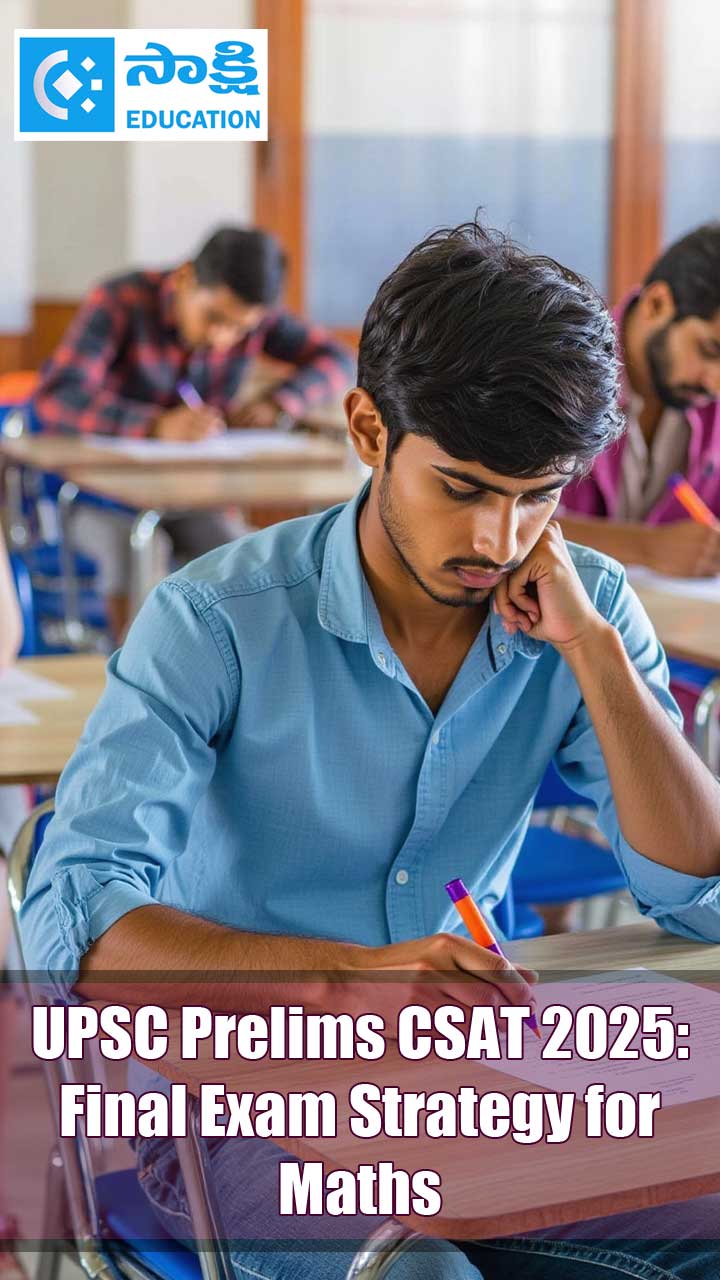SAARC Summit in Colombo
Sakshi Education
I. 15th SAARC Summit (Colombo, Sri Lanka, August 2-3, 2008):
1. Terrorism the Dominant Theme of the Speeches by SAARC Heads of State:
The 15th SAARC Summit was held in Colombo the Sri Lankan capital on August 2-3, 2008. Terrorism was the dominant theme of the speeches by all the SAARC Heads of State. All the SAARC leaders stressed that unless terrorism was defeated in all its forms and manifestations peace, progress and development of the region would be effected.
2. Indian Prime Minister's Address to the Summit:
Terrorism the Single Biggest Threat to Stability and Progress:
Prime Minister Manmohan Singh regretted that South Asia had not moved as fast as one would have wished. He identified terrorism as the single biggest threat to stability and progress. He stressed that the countries cannot afford to lose the battle against ideologies of hatred, fanaticism and against all those who seek to destroy the social fabric.
ASEAN an Example to Understand the Opportunities that Beckon SAARC:
Dr. Singh pointed out that the SAARC nations need to look at the rapid integration with the Association of South East Asian Nations (ASEAN) and its emergence as an important bloc in Asia to understand the opportunities that beckon.
SAARC Nations Must Act Jointly to Fight the Scourge of Terrorism:
India's Prime Minister pointed out that terrorists and extremists know no borders. The recent attack on the Indian Embassy in Kabul and the serial blasts in Bangalore and Ahmedabad were gruesome reminders of the barbarity that still finds place in South Asia. The SAARC nations must act jointly and with determination to fight this scourge and must defend the values of pluralism, peaceful coexistence and the rule of law.
3. SAARC Convention on Mutual Legal Assistance Treaty (MLAT) Approved:
The 15th SAARC Summit approved the SAARC Convention on Mutual Legal Assistance Treaty (MLAT). The SAARC Convention on MLAT needs to be ratified by the member-States to be operational.The objective of the MLAT is to strengthen SAARC conventions on Terrorism and Drug Trafficking. The MLAT is considered path-breaking since it enables greater cooperation among security forces of SAARC member-States to track, arrest and handover criminals and terrorists. The Treaty is significant as proposals for extradition treaties among SAARC members are still being negotiated.
4. Colombo Declaration - "Partnership for Growth of Our People":
A. Terrorism:
Deep Concern over the Serious Threat Posed by Terrorism to the Peace, Stability and Security of the Region:
The Colombo Declaration titled "Partnership for Growth of Our People" issued at the conclusion of the 15th SAARC Summit expressed deep concern over the threat posed by terrorism to the peace, stability and security of the region. Emphasised the need for the strongest cooperation in fighting terror and trans-national organised crime, especially in the area of information exchange. Reiterated Commitment to strengthen the legal regime against terrorism by implementation of all international conventions relating to combating terrorism to which the member-States were parties, as well as the SAARC Regional Convention on Suppression of Terrorism and the Additional Protocol to the SAARC Convention on Suppression of Terrorism. The SAARC leaders recognised the growing linkage between terrorism illegal trafficking in narcotic and psychotropic substances, humans and firearms and stressed the need to address the problem in a comprehensive manner. The SAARC leaders recognised the value of the proposed UN Comprehensive Convention on International Terrorism. The draft tabled by India in the UN has not been finalised due to lack of consensus among the member-States on some aspects like an acceptable definition of terrorism.
B. Trade:
The SAARC leaders welcomed the decision of the SAFTA Ministerial Council to commence negotiations on the Framework Agreement on Trade in Services and directed that the Draft Agreement on Investment Promotion and Protection be finalised early and the SAARC Arbitration Council be operationalised.
The members emphasised their commitment to implement SAFTA in letter and spirit
to enable SAARC to contribute to the dynamic process of Asia's emergence as the power house in the world.
The leaders also recognised the need to continue to address the major barriers hindering effective trade liberalisation in the region, which include sensitive lists of items and Non-Trade Barriers (NTBs).
The SAARC leaders wanted early implementation of the decision to revise the sensitive lists by the SAFTA Ministerial Council
C. Development:
The leaders recognised the need for SAARC to further strengthen its focus on developing and implementing regional and sub-regional projects. Each member was urged to consider taking up at least one sub-regional SAARC project as the lead country. Call for an early ratification of the Charter of the SAARC Development Fund (SDF) with a corpus of $300 million. The leaders also called for early operationalisation of the SDF from the available funds.
D. Climate Change:
The Colombo Declaration also dwelt on measures to face the challenges posed by climate change
II. Conclusion:
1. SAARC's Uniqueness can be Realised by a Shared Common Vision:
India's former President A.P.J. Abdul Kalam, pointed out that the inspiring and unique aspects of SAARC countries are as follows:
Largest population of youth in the world Combined purchasing power that has the potential to be the highest in the world. A civilisational heritage that goes back thousands of years.
This is the best environment for socio-economic development, and promoting peace and prosperity, if a common vision is shared and work is done together, according to the former President of India.
2. Challenges Before SAARC:
Tackling Poverty and Terrorism:
It is realised that unless poverty is addressed in a meaningful way, growth rates and development will have no meaning to the majority of the people. Political will is required to stamp out terrorism and terrorist infrastructure. These two problems need to be addressed to make SAARC an effective instrument of cooperation.
Improving Bilateral Indo-Pak Ties:
Analysts feel that the major challenge before SAARC is to maintain the momentum in improving bilateral political ties between India and Pakistan. Both countries need to put aside bilateral problems to place the SAARC agenda on a fast track.
Addressing Economic Insecurity of the LDCs:
SAARC needs to address the economic insecurity of the LDCs. This requires developing members like India and Pakistan to make unilateral trade concessions. India has already announced unilateral concessions to the LDCs.
Putting in Place Basic Economic Infrastructure:
Another challenge before SAARC is to put in place basic economic infrastructure to handle large volumes of trade.
Gradual Reduction of Tariffs on Sensitive Products:
The fears of specific sectors in each country - tea in India, textiles in Bangladesh and light engineering in Pakistan - that they might lose rather than gain from SAFTA need to assuaged with a more gradual reduction in tariffs on sensitive products.
Exploiting SAFTA’s Full Potential:
Finally, experts feel that to exploit SAFTA’s full potential, the SAARC members need to complement it by a customs union and then gradually move towards an economic union
Published date : 02 Oct 2009 02:10PM













